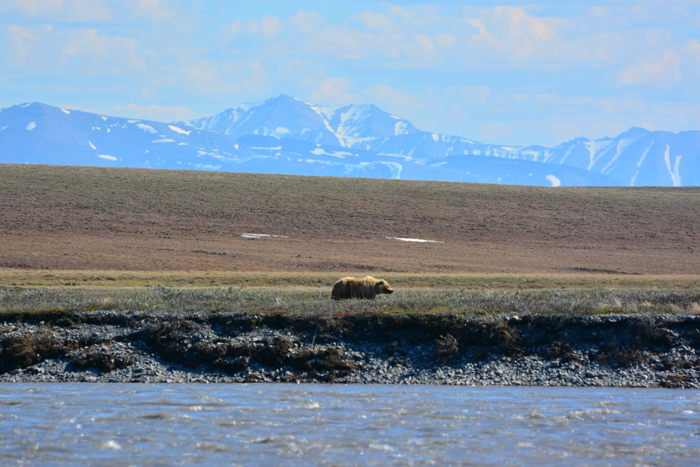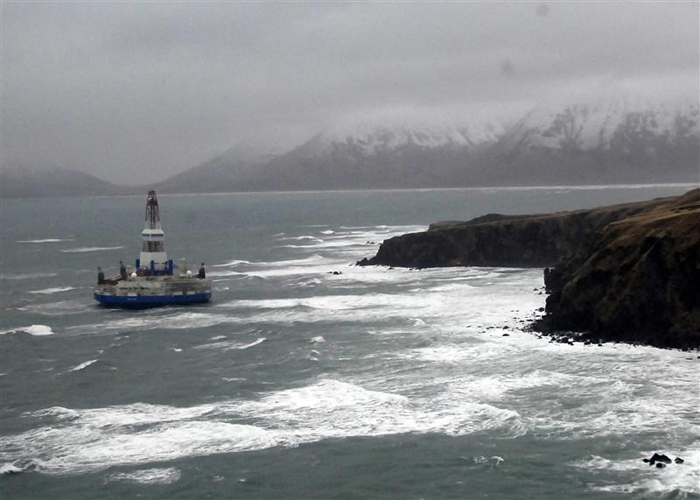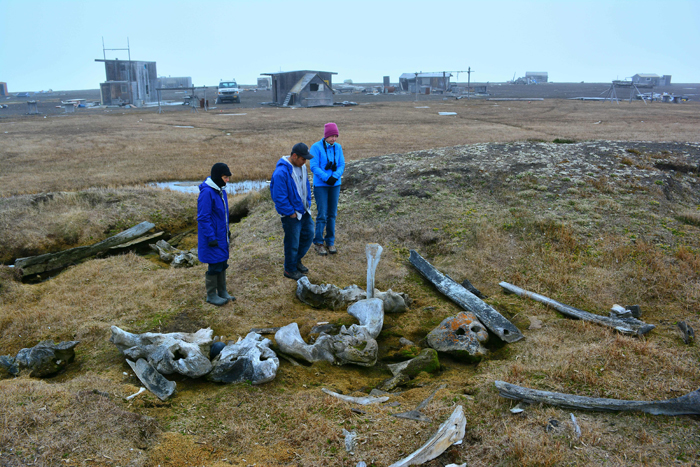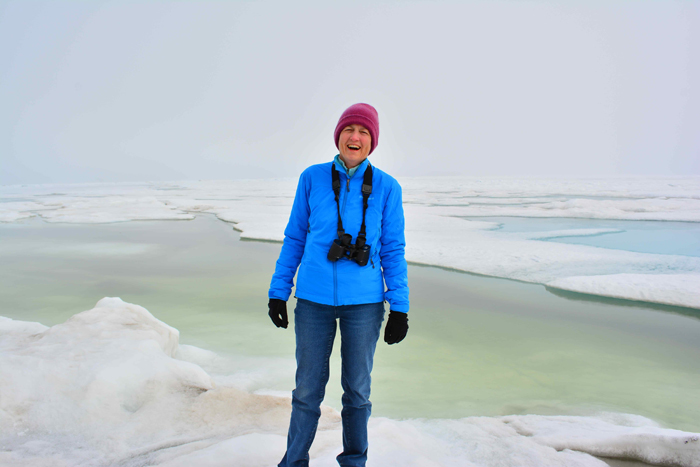
In a Warming Arctic, Oil Drilling Brings Disaster (Op-Ed)

Get the world’s most fascinating discoveries delivered straight to your inbox.
You are now subscribed
Your newsletter sign-up was successful
Want to add more newsletters?

Delivered Daily
Daily Newsletter
Sign up for the latest discoveries, groundbreaking research and fascinating breakthroughs that impact you and the wider world direct to your inbox.

Once a week
Life's Little Mysteries
Feed your curiosity with an exclusive mystery every week, solved with science and delivered direct to your inbox before it's seen anywhere else.

Once a week
How It Works
Sign up to our free science & technology newsletter for your weekly fix of fascinating articles, quick quizzes, amazing images, and more

Delivered daily
Space.com Newsletter
Breaking space news, the latest updates on rocket launches, skywatching events and more!

Once a month
Watch This Space
Sign up to our monthly entertainment newsletter to keep up with all our coverage of the latest sci-fi and space movies, tv shows, games and books.

Once a week
Night Sky This Week
Discover this week's must-see night sky events, moon phases, and stunning astrophotos. Sign up for our skywatching newsletter and explore the universe with us!
Join the club
Get full access to premium articles, exclusive features and a growing list of member rewards.
Frances Beinecke is the president of NRDC — an environmental advocacy organization with 1.4 million supporters nationwide — served on the National Commission on the BP Deepwater Horizon Oil Spill and Offshore Drilling, and holds a leadership role in several environmental organizations. Beinecke contributed this article to LiveScience's Expert Voices: Op-Ed & Insights.
Shell Oil recently announced plans to resume drilling operations in the Arctic Ocean this summer. The company suffered a string of failures when it tried to drill there last year — from having its emergency equipment "crushed like a beer can" in tests to grounding its drill rig in a winter storm. But these fiascoes haven't stopped Shell. The company is determined to gamble with pristine ocean waters once again.
Yet even as the oil giant draws up drilling plans, the Arctic continues to feel the brunt of climate change. Last year, the extent of sea ice in the Arctic was the smallest on record — just half the average coverage of recent decades. This year was slightly better, but scientists say the trend of shrinking ice will amplify global warming by darkening the planet's surface and allowing more heat to be absorbed — ultimately contributing to changing weather patterns that already threaten communities in the United States and around the world, from New York to the Philippines.
America doesn't need to trash the Arctic Ocean. We don't need to make climate change worse with more dirty fuels. We have safer, cleaner ways to power our economy. And we have the wisdom to recognize that some places are too special to drill.
The United States is already embracing innovations that strengthen energy security and preserve our natural heritage at the same time. Last year, our nation raised fuel-efficiency standards for new cars to 54.5 miles per gallon — on average — by 2025. That's about double the mileage our cars get today. These standards will save consumers $1.7 trillion at the gas pump and reduce our oil imports by one-third — they will also cut in half the amount of global-warming pollution coming from new cars.
Similar gains in efficiency have helped slash our fossil fuel use across the economy. In fact, efficiency has done more to meet America's growing energy needs in the last 40 years than oil, gas and nuclear combined.
Efficiency is our fastest growing energy resource, and together with our enormous stores of wind, solar and other renewable power, it represents the energy future. The United States has the ability to rely 100 percent on clean energy, and NRDC is committed to reaching that goal as soon as possible.
Get the world’s most fascinating discoveries delivered straight to your inbox.
This is the path forward for our nation. But if we continue to sacrifice our communities and wild places by drilling for fuels that cause climate change, we will find ourselves in a dead end.
This summer I stood on the coast of the Chukchi Sea, where Shell plans to drill, and marveled at its wild shoreline, sculpted ice, and enormous northern sky. I knew that underneath the surface, the sea was teeming with life. Shellfish thrive along the long shallow floor, creating a smorgasbord for walrus, seals, and gray whales. Roughly half of America's polar bears live off the Chukchi. [Arctic Drilling Risks Threaten Inupiat Traditions (Op-Ed)]
As I looked out to sea, I tried to imagine what would happen in the event of an oil spill. When I served on the National Commission on the BP Deepwater Horizon Oil Spill and Offshore Drilling, I saw how the industry struggled to respond to a spill in the Gulf of Mexico. A spill in the Arctic would prove far more challenging. Oil would be trapped under ice for months, and the nearest back-up supply of response gear is 2,000 miles away.No oil company is a match for those remote and rugged conditions.
The Arctic is the last wild ocean the planet has left, and it is already suffering more from climate change than any other region on the planet. We should safeguard it, not compromise it further with drill rigs and carbon pollution. NRDC is fighting to block Shell from drilling so we can keep these Arctic waters wild and pristine, and we are calling on the administration of President Barack Obama to scrap plans to offer more oil and gas leases in the Chukchi Sea.
And at the same time, NRDC continues to expand the energy solutions that already clean up our air, put Americans to work and reduce the threat of climate change. You can join the effort by going to NRDC's new site DemandCleanPower.org. Together, we can build a clean energy future.
Beinecke's most recent Op-Ed was "Can the World's Oldest and Largest Democracies Come Together Over Climate?" The views expressed are those of the author and do not necessarily reflect the views of the publisher. This version of the article was originally published on LiveScience.
 Live Science Plus
Live Science Plus














